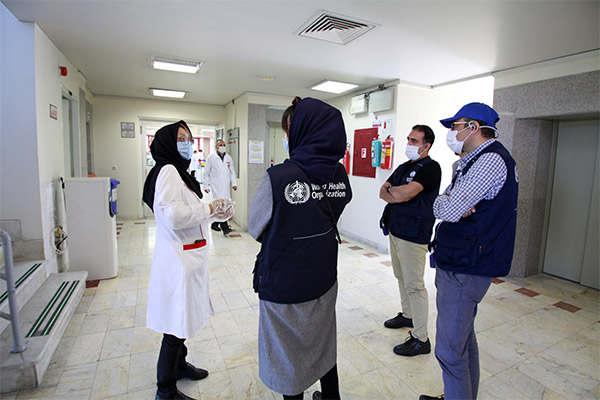What we do
What we have achieved
- Rapid assessment of strategic purchasing arrangement towards achieving UHC by implementing the WHO framework and tool was undertaken.
What is next

- WHO will continue to support the implementation of the Primary Health Care Measurement and Improvement Initiative (PHCMI) at subnational level to enhance primary health care (PHC) performance.
- A capacity-building programme for PHC managers in line with PHCMI implementation in an additional 2 phases will be performed. The target group in phase II will be mid- level PHC mangers, including heads of PHC networks and provincial health centres and, managers and technical experts in local catchment area. Phase III will include senior PHC managers and technical experts within the departments of public health at ministerial and university level.
- Support for telemedicine capacity in the country will be scaled up and this initiative has been included in future plans.
- An assessment to improve the efficiency of health systems in the Eastern Mediterranean Region and the sharing of county case studies will be undertaken.
- A strategy for implementation of the recommendations, including national consultations and overall and concrete policy/ legal framework to support national and international commercialization of health products will be developed.
- Accreditation of hospitals based on quality and safety international indicators will be undertaken.
- Revision of the essential medicines list will be supported.
- Prequalification of food and drug control-reference laboratories will be supported and maintained.
- Regulatory capacity of the Food and Drug Administration based on the global benchmarking tool and institutional development plan will be enhanced.
- Adverse events of special interest/adverse events following immunization and pharmacovigilance for vaccines and medicines will be strengthened.
- Research and development for vaccine and medicine products, including clinical trials, are among the works to be supported.
- Technical support for the Ministry of Health and Medical Education and relevant bodies on information observatory plus IT and statistics for dashboarding, visualization, big data management, data analysis and interpretation, digital health, E-prescription and evidence informed policy-making along with implementation of international classifications (International Classification of Diseases-11, International Classification of Health Interventions, WHO Family of International Classifications, International Nonproprietary Names) prepared and the network of institutions for evidence to policy (NEDtP) will be supported.
- Also, research for evidenced-based policy-making according to the road map implemented, institutionalizing evidence-informed policy-making will be supported and technical support will be provided to potential institutions/centres to become WHO collaborating centres identified and supported.
- Implementation, monitoring and support to reporting on progress towards the Sustainable Development Goals and implementation of the Global Action Plan for Health Lives for All will continue.








